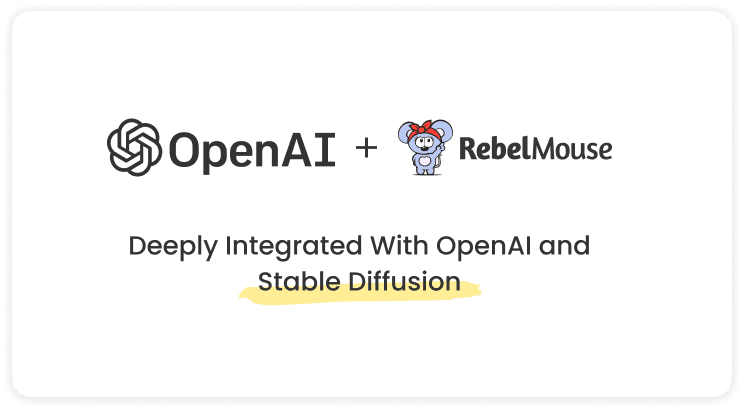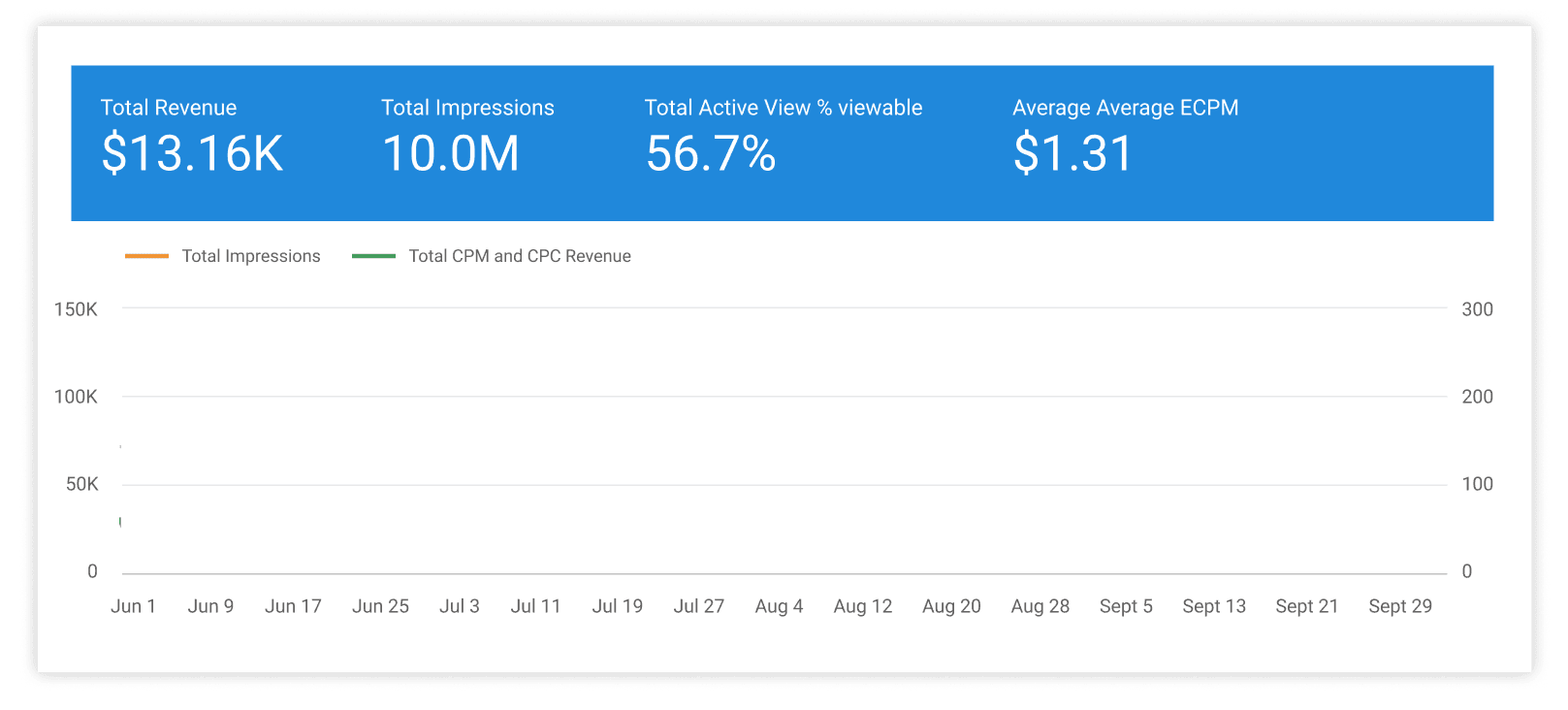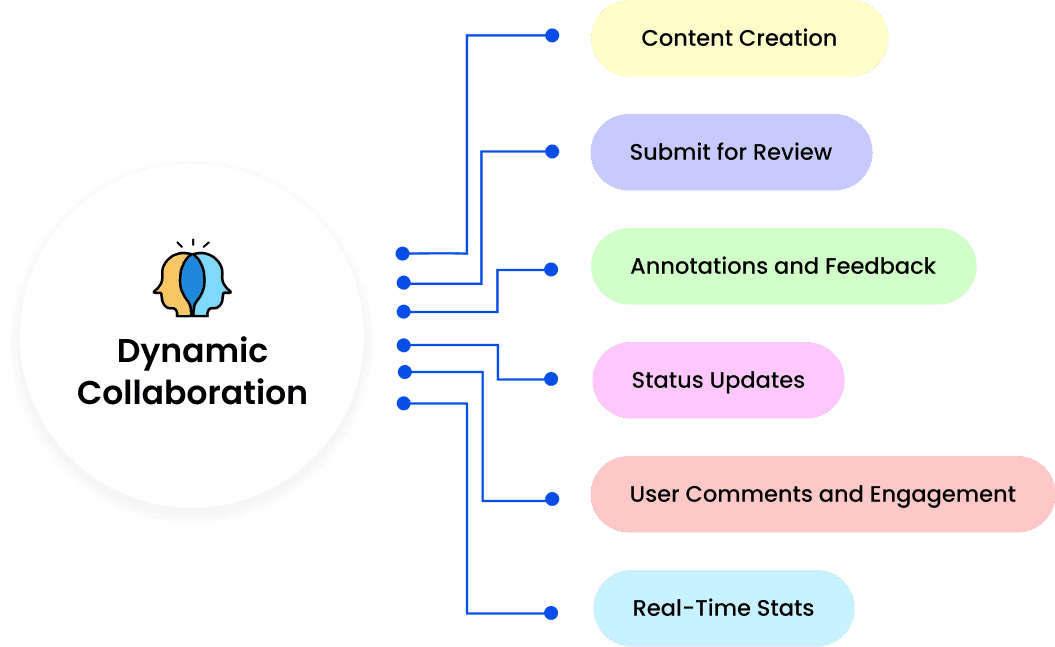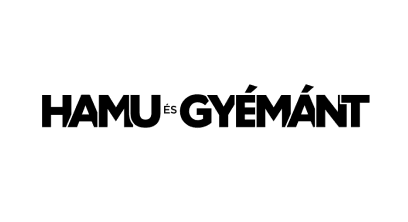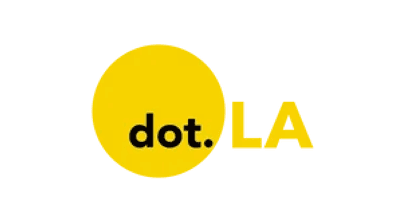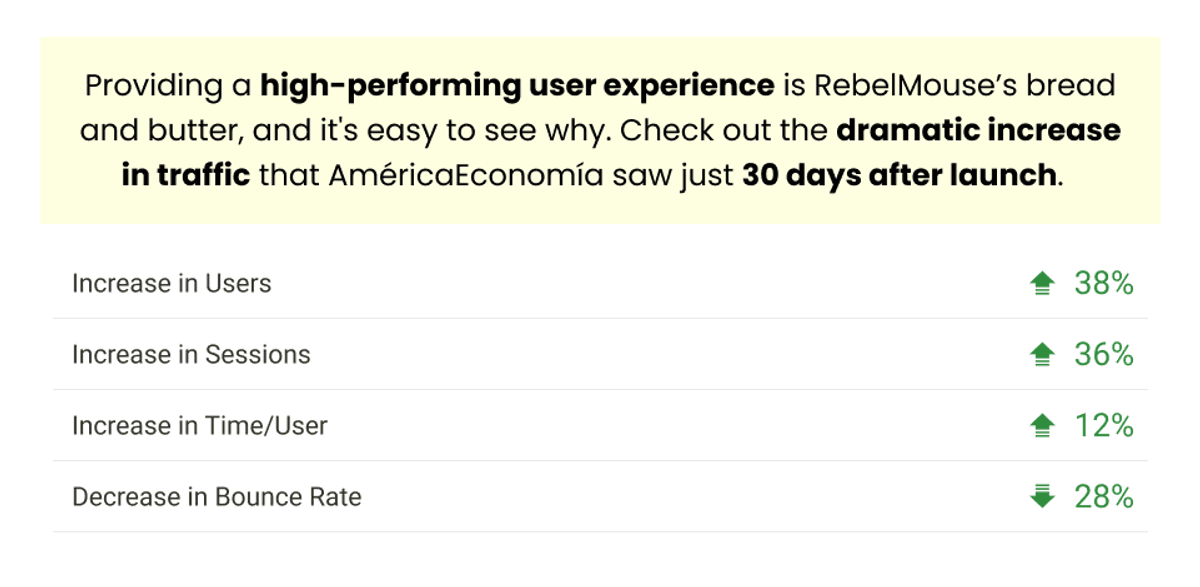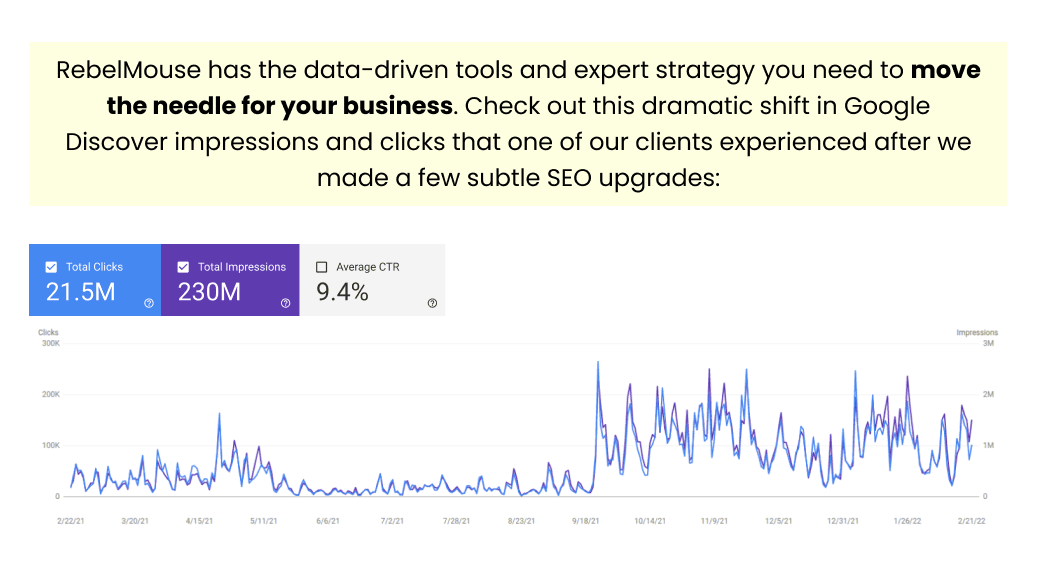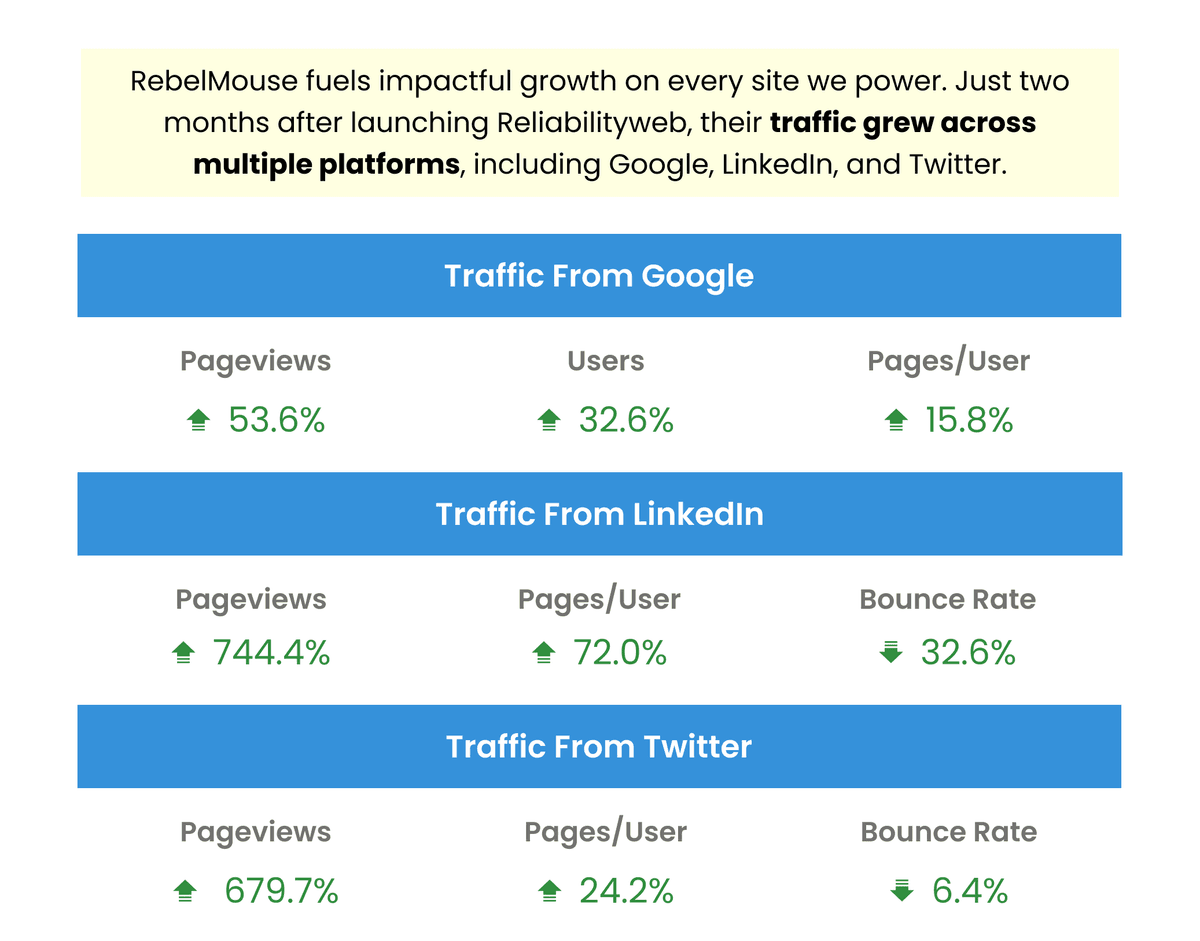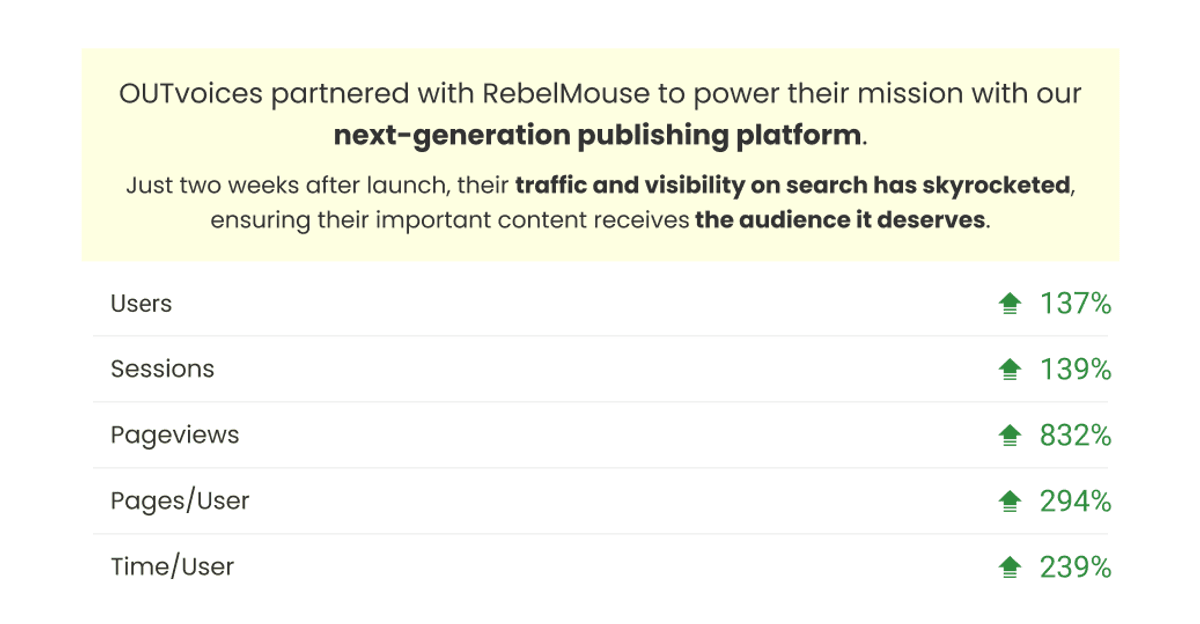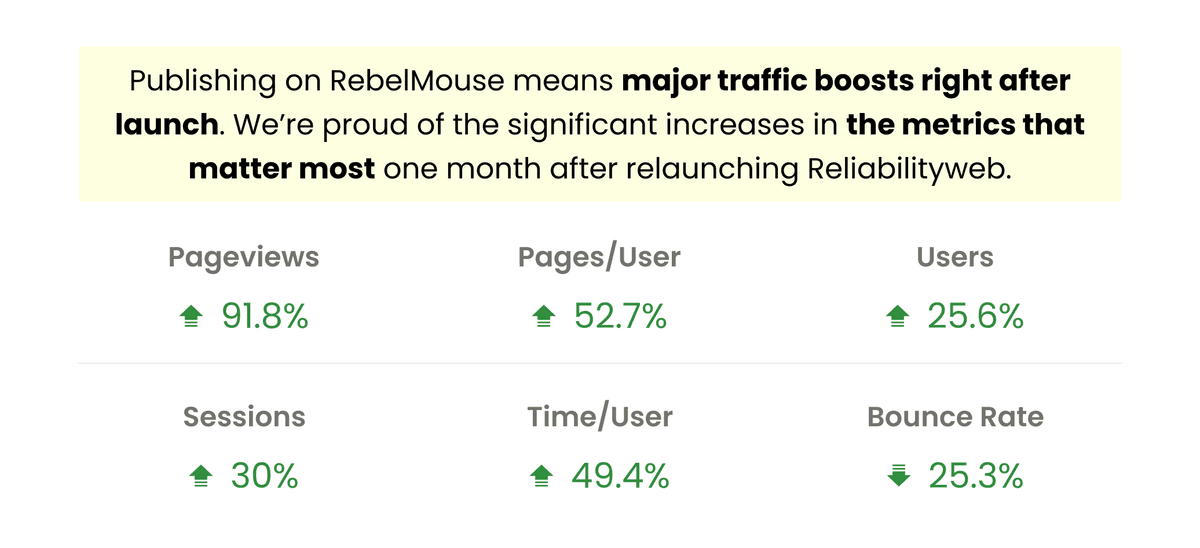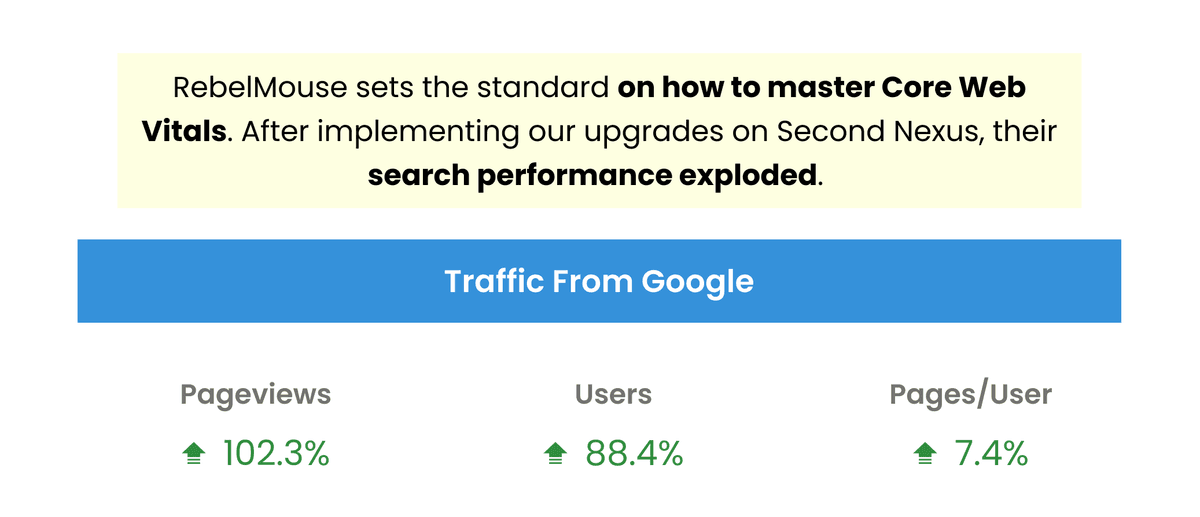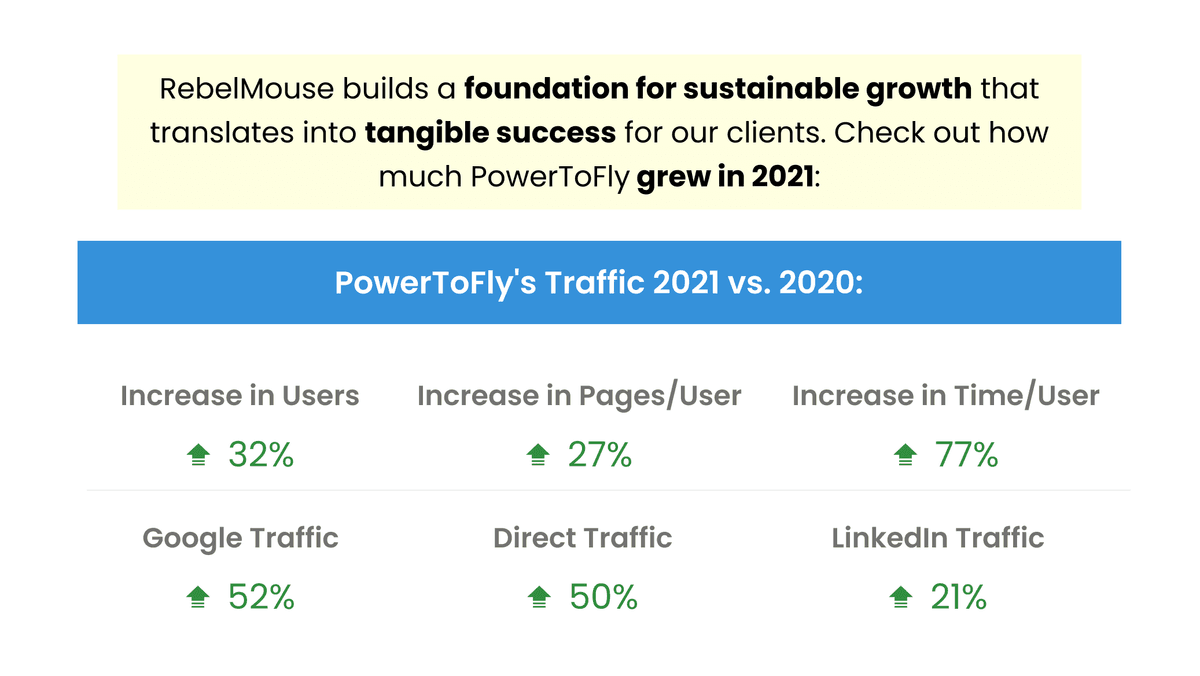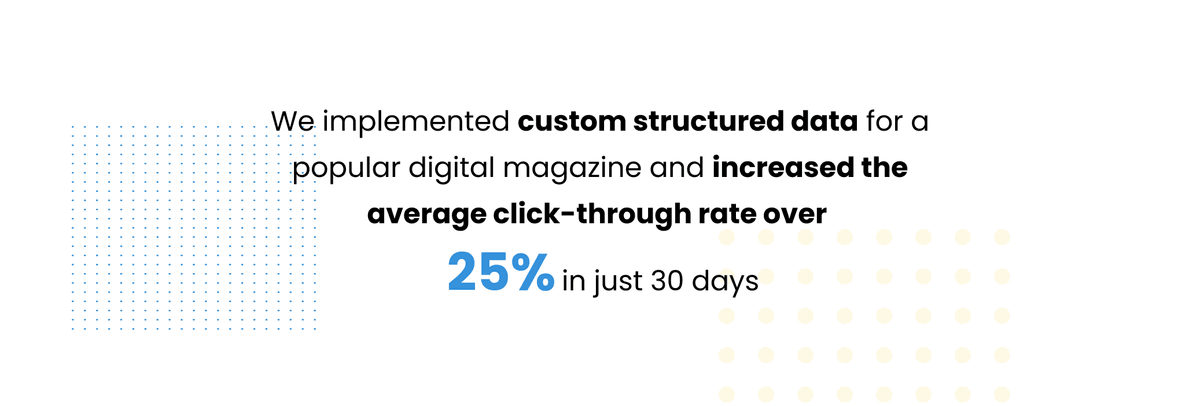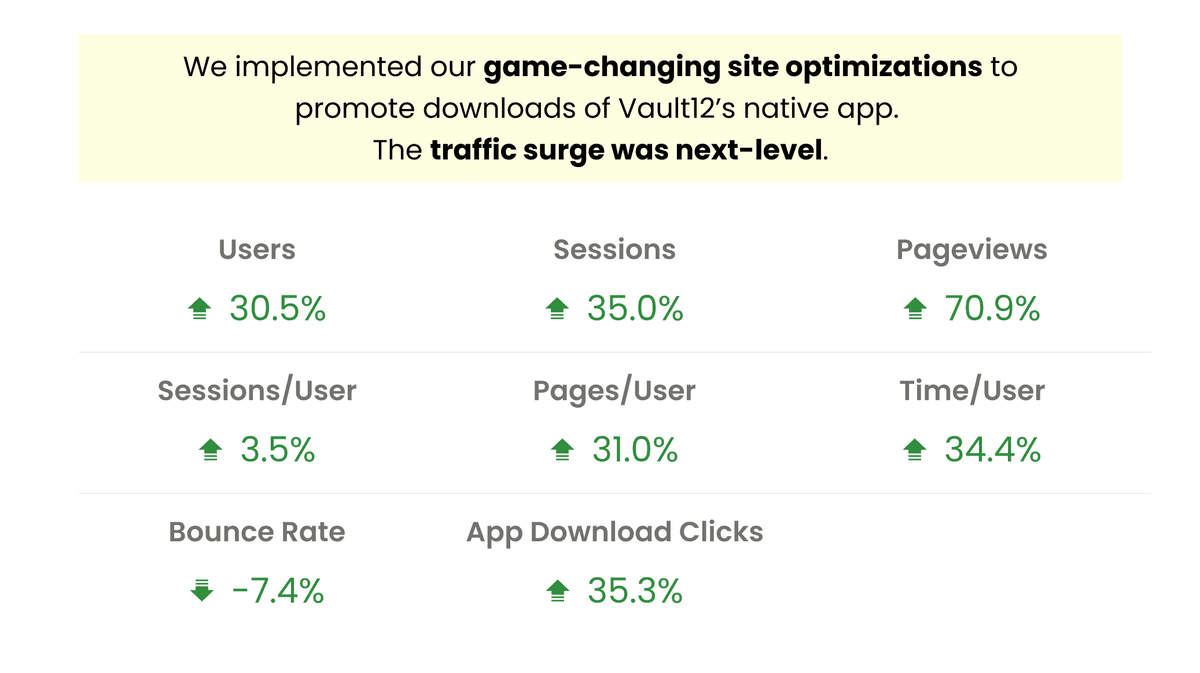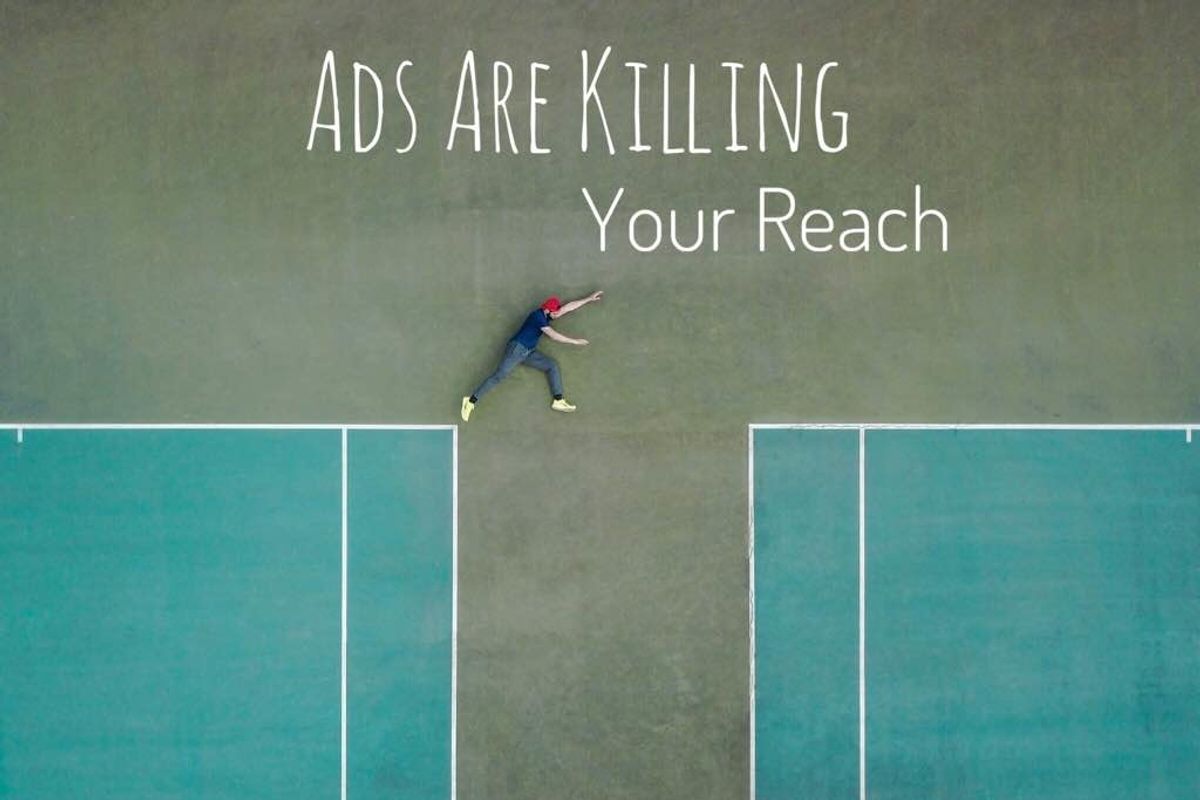
In case you didn't hear, Google will start blocking ads on February 15, 2018. Specifically, Chrome will stop showing all ads (including those owned or served by Google) on websites that display non-compliant ads. This means anything invasive: full-page ad interstitials, ads that unexpectedly play sound, and flashing ads.
On a similar note, Facebook has implemented a number of changes recently that have been affecting publishers' reach. And while it seems nearly impossible to figure out a winning strategy while juggling all of the platform's algorithm updates, one thing is abundantly clear:
Video ads are hurting your reach.
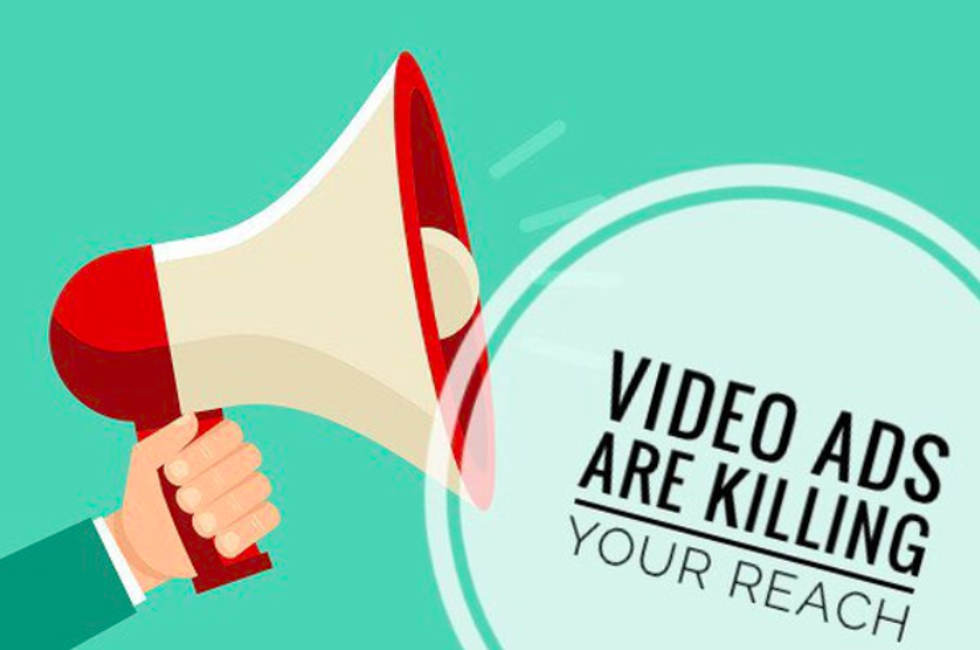
We're now finding that if you have a video ad on your site period, the Facebook gods are not going to favor you — and you'll most likely see a drop in reach.
On May 10 of this year, Facebook made it official: They rolled out an update that lets people see fewer posts and ads in the News Feed that link to low-quality web page experiences.
Facebook refers to "low-quality sites" as those "containing little substantive content, and that is covered in disruptive, shocking or malicious ads."
This is a very similar approach to what Facebook has recently done to combat fake news, focusing their updates on halting misinformation and giving more breathing room to quality content.
Facebook's Newsroom officially dove into this issue to explain why:
"We hear from our community that they're disappointed when they click on a link that leads to a web page containing little substantive content and that is covered in disruptive, shocking or malicious ads. People expect their experience after clicking on a post to be straightforward."
The way Facebook is handling this at scale is through AI automation. Here's how it works :
- Posts with links to sites that include spammy links or ads will see their reach drop.
- Spammy ads are now blocked from being approved.
In addition to the artificial intelligence, Facebook will rely on input from users (through surveys) to update and sharpen their AI algorithm. They'll likely also continue to use the data they receive from users when posts are marked as spam.
Per Facebook:
"This update will help reduce the economic incentives of financially-motivated spammers."
And with that statement alone, it's rather clear that the war on bad-quality content has begun.
If you navigate your own site and feel like annoying ads keep blocking your reading experience, then you probably have to review what ads you've implemented so far.
There's no doubt that bombarding your site with ads is no longer sustainable and will hurt you in the long run. Find out how to approach the new era of digital publishing and win at Facebook here .
























